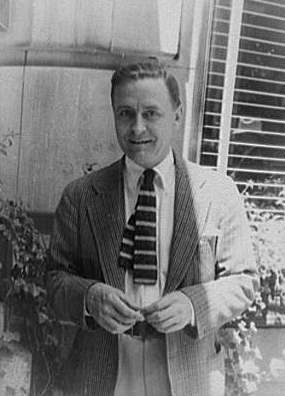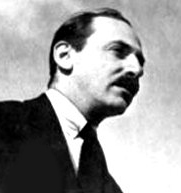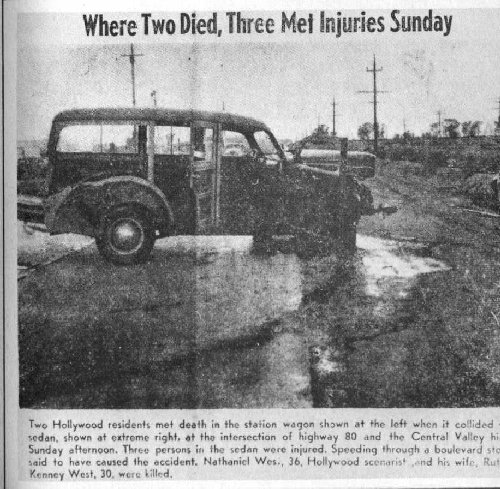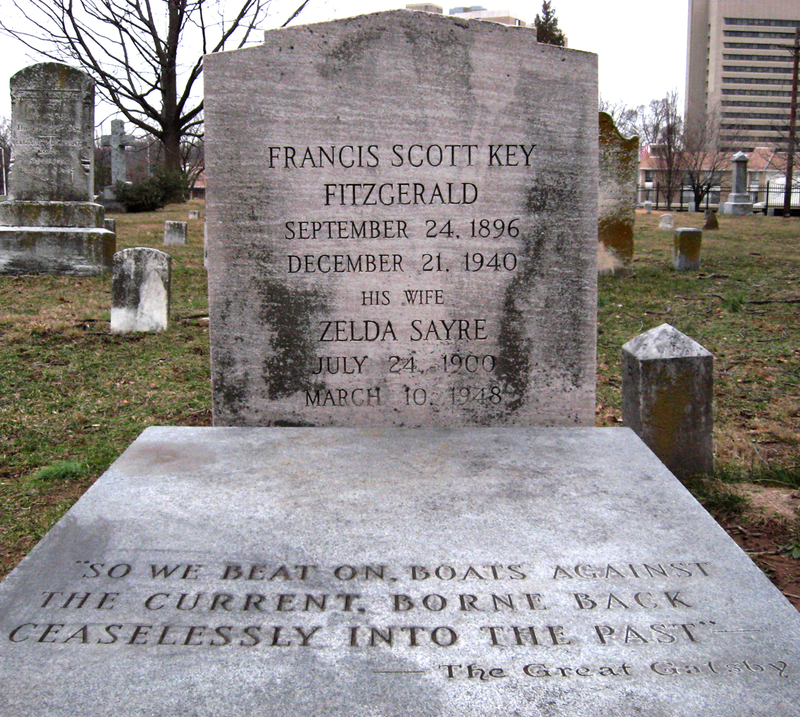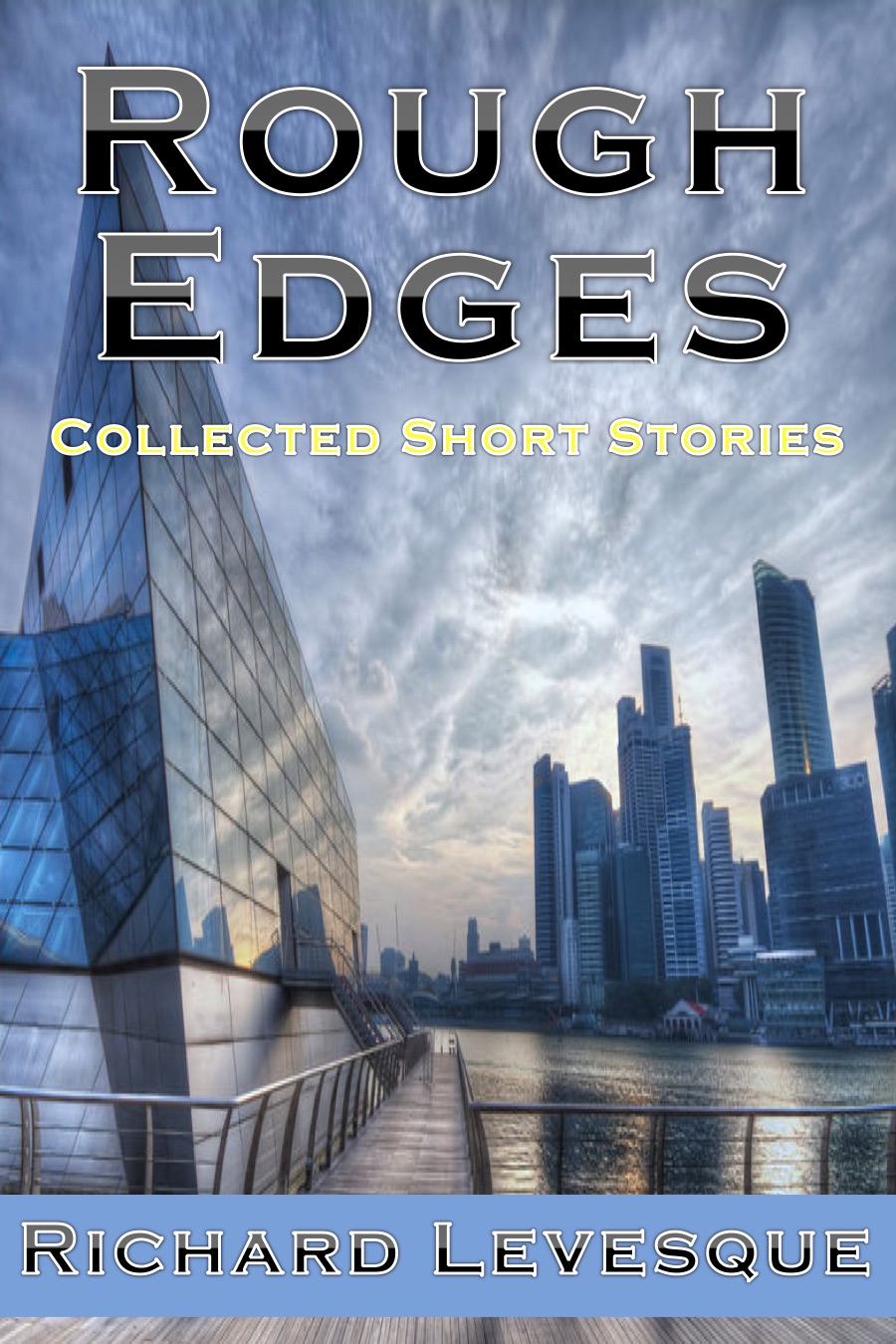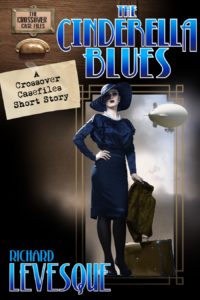Undoing One of Los Angeles’ Literary Myths
Back in the days when I was a young, impressionable college student, one of my Literature professors told a story in class that really stuck with me. We were talking about Los Angeles literature, something I found interesting but didn’t know much about yet. He told the class about how F. Scott Fitzgerald and Nathanael West came to Hollywood in the late 1930s, each writing for and about the film industry, and how they both died within a day of each other; both bodies, he said, were laid out at the same Pierce Brothers mortuary and then were shipped east for burial on the same Santa Fe Super Chief.
Don’t ask me why I found the story so fascinating, but I did. I had read The Great Gatsby in high school and a friend had lent me West’s Miss Lonelyhearts about a year before hearing about these two authors’ deaths. I remember being blown away by West’s style and the unsettled feeling I had while reading him; it was the literary equivalent of having a fever, making me feel as though everything was somehow wrong and out of touch as I read. It would take me a few years to get around to reading either of the dead writers’ Hollywood novels, Fitzgerald’s The Last Tycoon and West’s The Day of the Locust, but I didn’t need to read those books to be hooked on the tragic possibilities of these writers’ almost concurrent deaths and coinciding funeral processes.
If you look around for biographical information on either West or Fitzgerald, you’ll find lots of writers essentially repeating the story my professor told me back in mid-80s: Fitzgerald died of a heart attack in Hollywood on December 21, 1940; many writers claim that West was so distraught over Fitzgerald’s death that it distracted him while he was driving the next day, resulting in a car accident that killed him and his wife while they were on their way back to Hollywood after a hunting trip in Mexico. Several writers have noted that Fitzgerald was laid out in the Wordsworth room at the Los Angeles Pierce Brothers mortuary, with West’s body there as well. Several noteworthy visitors came to Fitzgerald’s viewing, among them Dorothy Parker who uttered the “poor son of a bitch” line from Gatsby. After that, as the story goes, the Super Chief carried them east, Fitzgerald being buried in Maryland and West in New York.
The thing is, it didn’t happen that way. About the only accurate part of the story my professor–and countless others–have been spreading around for years, is the dates of the two writers’ deaths.
By the time I started working on my Ph.D. dissertation, I’d become even more fascinated with Los Angeles and Hollywood writers: not just Fitzgerald and West but also John Fante, Raymond Chandler, Horace McCoy, Don Ryan, Dalton Trumbo and a handful of others. Many people who’d come west during the 1920s and 30s to write for the film industry hadn’t ended up doing so well, and several of them hadn’t quite recovered as novelists after their time at the studios. What developed was a myth of Hollywood-as-destroyer–of writers and creativity in general, but in a more direct sense Hollywood was blamed as the literal destructive force in the deaths of Fitzgeral and West, critics like Edmund Wilson directly implicating the film industry in the literal and creative deaths of these writers, Wilson going so far as to report that West died on Ventura Blvd. (not far from Hollywood) rather than on a lonely highway near El Centro, just north of the Mexican border.
It seemed to me that the congruence of West’s and Fitzgerald’s deaths was just too convenient, that it fit the myth a little too perfectly, so I started digging to see how true it was. My suspicion was also triggered by the fact that, while there are several accounts of people visiting Fitzgerald’s body at the Los Angeles Pierce Brothers, I could find no accounts of any of West’s friends visiting his body at the same site. True, West wasn’t as famous as Fitzgerald, but he had been living in Hollywood for quite a while and had moved comfortably in the city’s literary circles. Why had no one ever written about West’s casket, other than to say it was there?
It turns out, it wasn’t.
When academic-style research didn’t lead me anywhere, I fell back on my genealogical skills, looking at pubic records on the deaths of the two writers. One of the first places I looked was the Los Angeles Times, where I found that Fitzgerald’s death wasn’t even reported until December 23rd. It’s possible that West may have heard about Fitzgerald’s heart attack on the radio, but it wasn’t exactly big news, and I doubt it would have been widely reported. And while the two writers were friends, they weren’t extremely close, so it’s doubtful that some mutual acquaintance would have sought West out on his hunting trip to give him the news. Most likely, as West’s biographer Jay Martin has argued, West died because he was a notoriously bad driver who ran a stop sign. It had nothing to do with his being distraught over Fitzgerald’s death.
Looking further into the Times, I found the funeral announcements. It is true that Fitzgerald’s body was available for viewing at the Los Angeles Pierce Brothers, and most likely true that all the famous writers who claimed to have visited the body actually did. However, West’s body was nowhere near Fitzgerald’s. His body was taken to a different Pierce Brothers, one in Hollywood.
There was still the part of the story where both bodies left Los Angeles on the same Santa Fe Super Chief, however, so I dug a little further, getting a copy of Fitzgerald’s death certificate from Los Angeles County and West’s from Imperial County. It was West’s death certificate that clinched things for my research. According to that document, West’s body didn’t even leave El Centro until the day after Fitzgerald’s body shipped out for Maryland. Not only were the two writers’ bodies never in the same mortuary, but they also weren’t ever in the same city. By the time West’s body made it to the Hollywood Pierce Brothers, Fitzgerald’s was well on its way to the east coast.

Excerpt of Fitzgerald’s death certificate, showing the body removed from Los Angeles to Baltimore on December 23rd.

Excerpt of West’s death certificate, showing the body removed from El Centro to Los Angeles on December 24th.
So what does it all mean? In part, it suggests that academic research, like gossip, tends to replicate itself, sometimes turning inaccuracies and innuendo into fact, legitimized by repetition and citation. For me, it was a way into the other myths about Hollywood writers, suggesting that while some may have literally died and others may have creatively died, those deaths may not have been the fault of the film industry. My dissertation went from there, looking at other writers’ work during the same period. I still find it fascinating, in part because those myths are still so prevalent. The truth may not be as cool, but the fact that a lot of it remains hidden does somewhat make it so.
Dalton Trumbo F. Scott Fitzgerald Hollywood Writers Horace McCoy Jay Martin john fante Miss Lonelyhearts Nathanael West Pierce Brothers Mortuary Raymond Chandler The Day of the Locust The Great Gatsby The Last Tycoon
